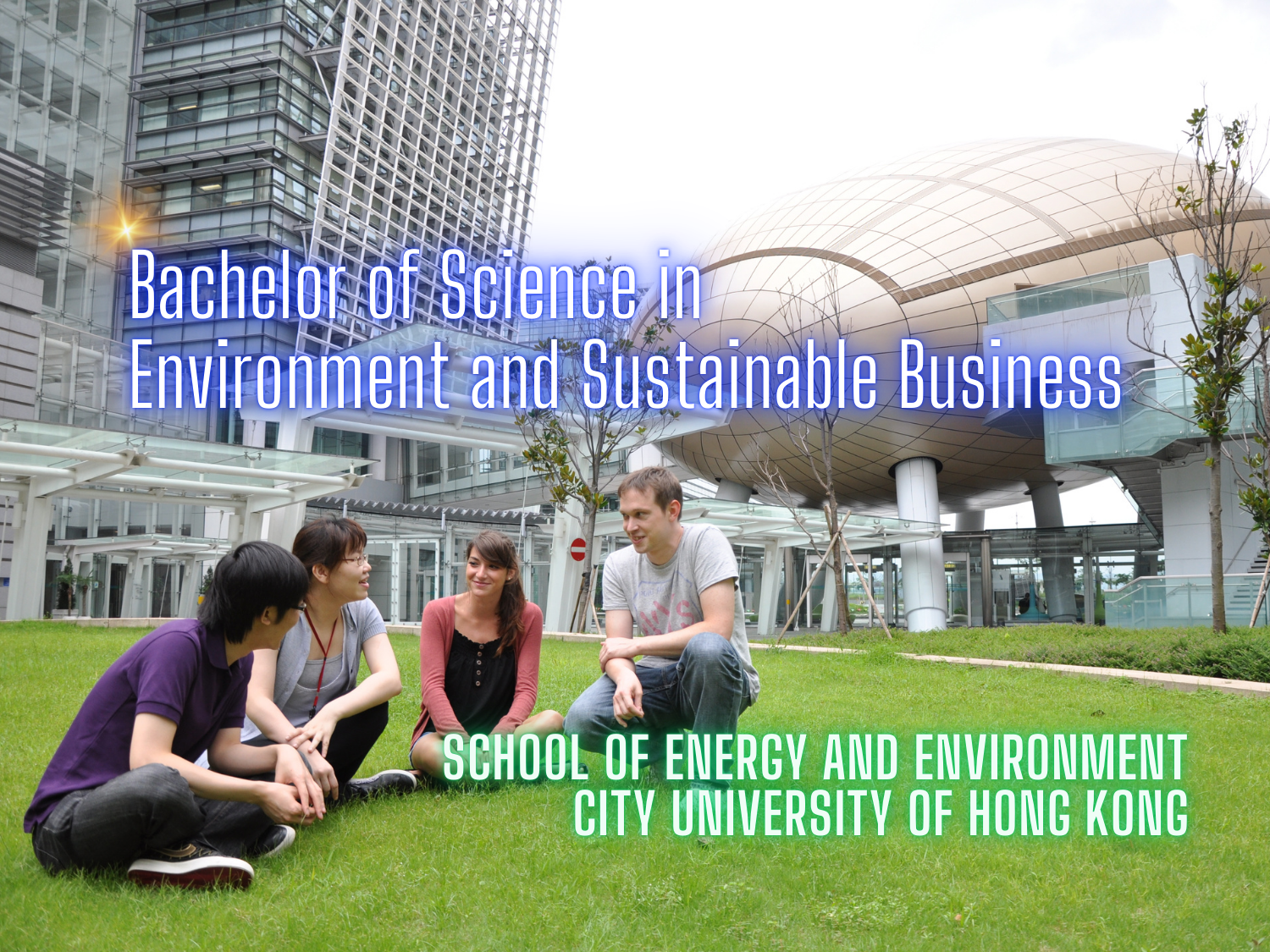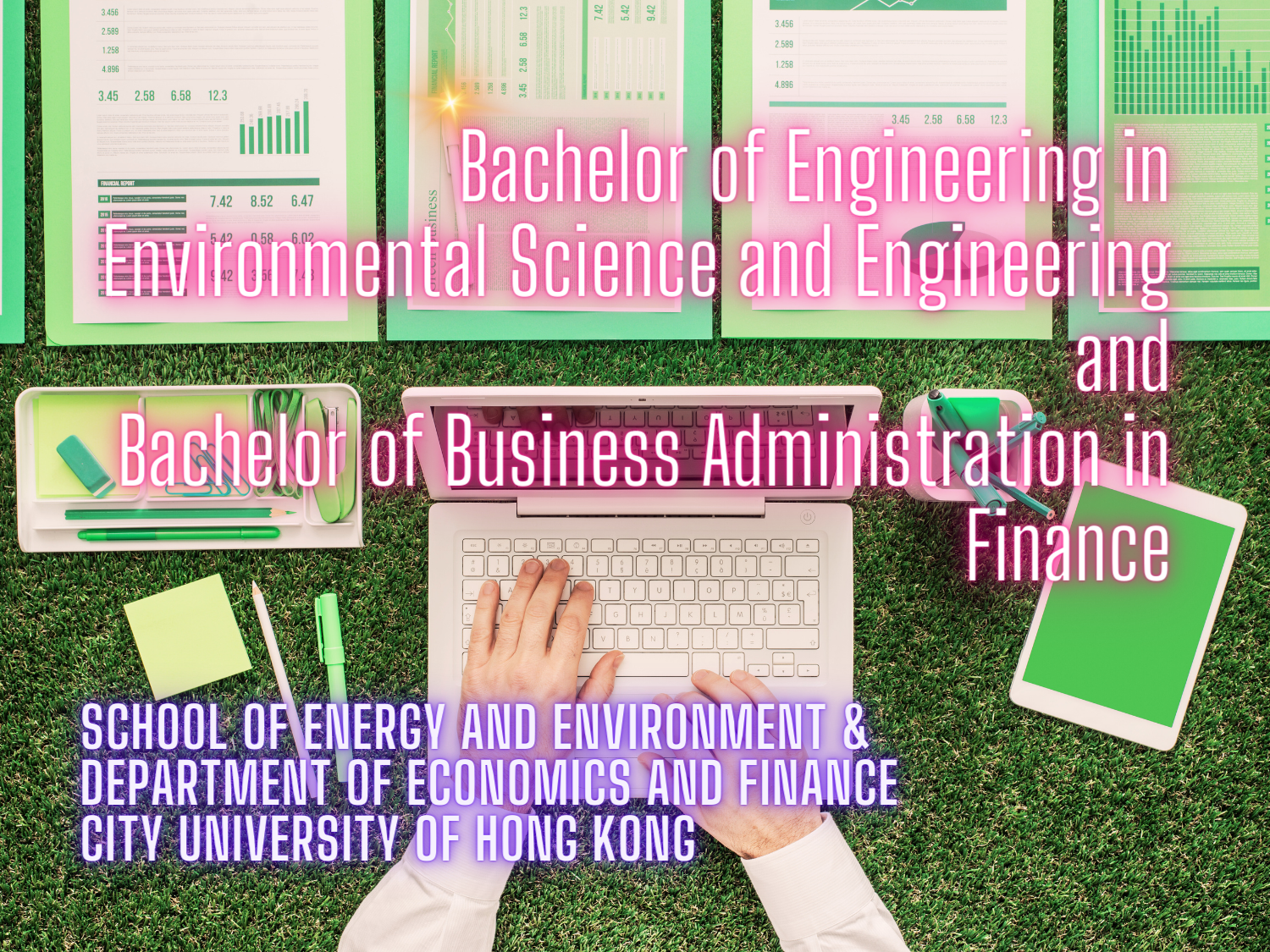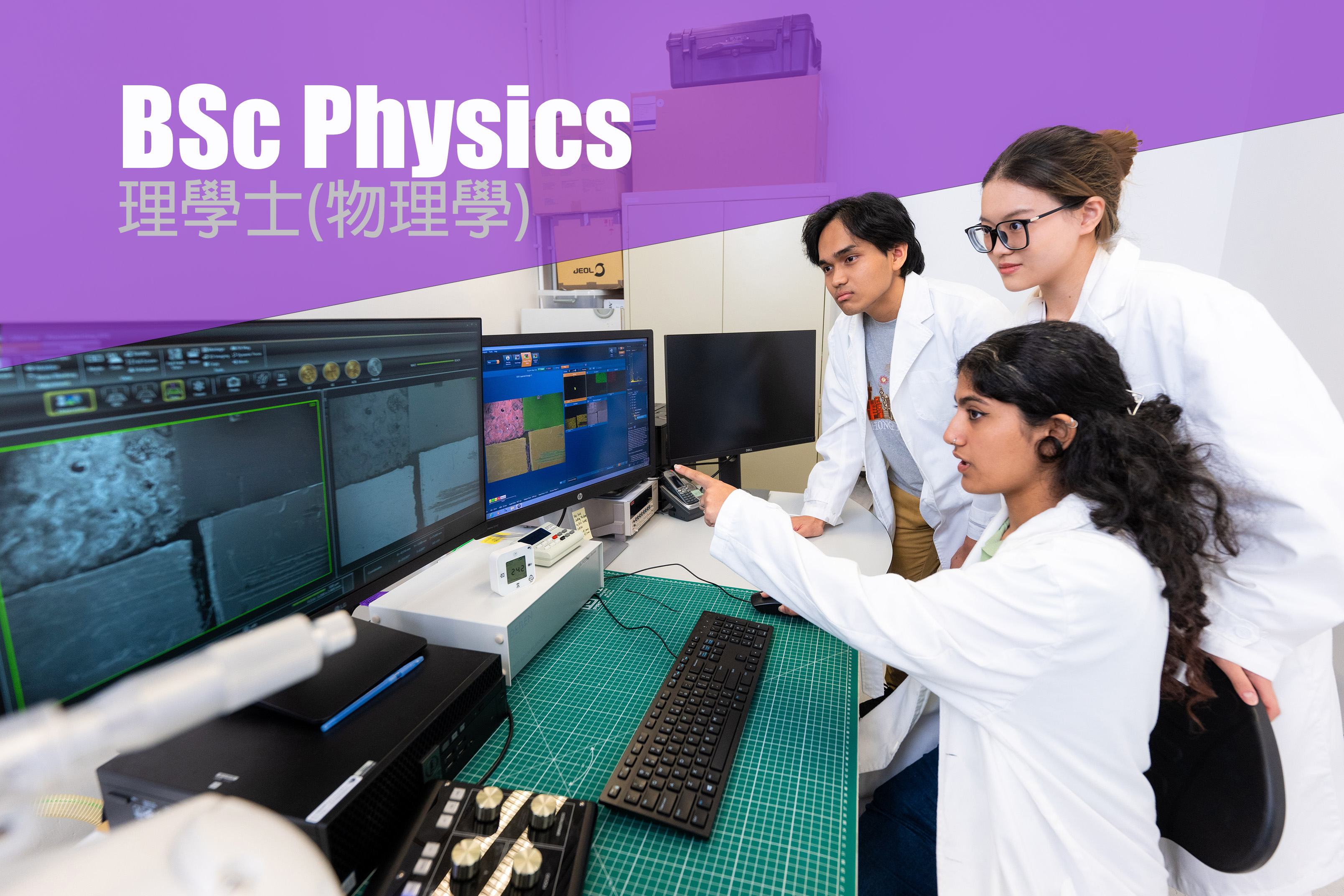BSc Environment and Sustainable Business (Features: Environmental Science / Business Sustainability / Environmental, Social & Governance (ESG))

1053 (JS1053)
Local Places:
30 (For First-Year Entry; Tentative)*
Non-Local Places:
(For Overall Direct Applications):
Around 400
* for JUPAS and non-JUPAS admissions
The Bachelor of Science in Environment and Sustainable Business is a four-year undergraduate programme that is jointly offered by the School of Energy and Environment (SEE) and the College of Business (CB). The programme is designed to provide students with a comprehensive understanding of the principles and practices of sustainable business and Environmental, Social, and Governance (ESG), and their integration in the business world.
By the end of the programme, students will have a comprehensive understanding of sustainable business and ESG, and be able to apply their knowledge to real-world scenarios. They will also have a solid foundation in the science behind non-financial disclosures, and be familiar with the latest trends and technologies in sustainable energy and other fields in support of investment decision-making for sustainable finance.
The programme will be taught through a combination of lectures, case studies, and interactive discussions, and will feature experiential learning and industry connection via experts sharing (e.g., in guest lectures) from practitioners of leading organizations in Hong Kong. Students will have the opportunity to engage with real-world sustainable business/finance projects and develop practical skills in sustainability assessment, ESG integration, and impact investing. Students will also have a comprehensive understanding of sustainability in practice and ESG challenges and opportunities, and be prepared to pursue careers in this rapidly growing field.
The rationale for starting a new 4-year undergraduate programme in Environment and Sustainable Business is to meet the growing demand for professionals who can integrate ESG considerations into business, finance, and investment decisions. This demand is driven by the recognition that ESG factors are critical to long-term financial performance, and is reflected in the increasing popularity of sustainable investing and the growth of the sustainable finance industry. Hong Kong is well-positioned to take advantage of this growing demand, given its strategic location as a major financial hub and center for international trade and finance.
JUPAS Entrance Requirements
| JS1053 BSc Environment and Sustainable Business (Features: Environmental Science / Business Sustainability / Environmental, Social & Governance (ESG)) | |
| HKDSE Subject | Minimum Level Required |
| English Language | Level 3 |
| Chinese Language | Level 3 |
| Mathematics | Level 3 |
| Citizenship and Social Development | Attained |
| Elective 1 | Level 3 in one elective subject from: - Biology - Chemistry - Physics |
| Elective 2 | Level 3 |
Notes:
- Besides Category A elective subjects, Mathematics extended modules (M1/M2) and “other languages” can also be used to meet the elective requirement. If students take both M1 and M2, they are counted as one subject only.
- Applied Learning subjects are not counted as elective subjects.
- For details of the alternative Chinese Language qualifications acceptable by the University for Non-Chinese Speaking (NCS) students, please click here.
Direct/ Non-JUPAS Applicants Entrance Requirements
In addition to meeting the General Entrance Requirements as stipulated by the University, as a guide for applications, direct / non-JUPAS applicants are expected to have studied Mathematics and subjects related to Chemistry/Physics at a high school or post-secondary institution.
For the full curriculum structure, please refer to the School website at the following link:
Integrated Enrichment Programme comprises a wide range of co-curricular activities and training that are tailored for SEE undergraduate students. Through the Programme, students will be exposed to not only summer programme and regular student exchange, but also industry-ready internship, professional training in leadership, presentation skills, business etiquette, business communication, and so on. The series of co-curricular activities organized by SEE every year aims to equip our students to be all-round professionals who possess skillsets highly sought after by the job market.
- ITC STEM Internship Scheme
- Industry Ready Programme
- Student Exchange & Overseas Summer Programme
- Industrial Mentorship Programme
- Career Aspiration & Development: Talks and Training
- Student Chapter
For details, please visit our page at:
https://www.cityu.edu.hk/see/student-life-and-learning/integrated-enrichment-programme
Miss Michelle WONG
理學⼠(環境及可持續發展商業)
Not Required
On a selective basis
- Early to mid-July 2025
- Group interview
- English






